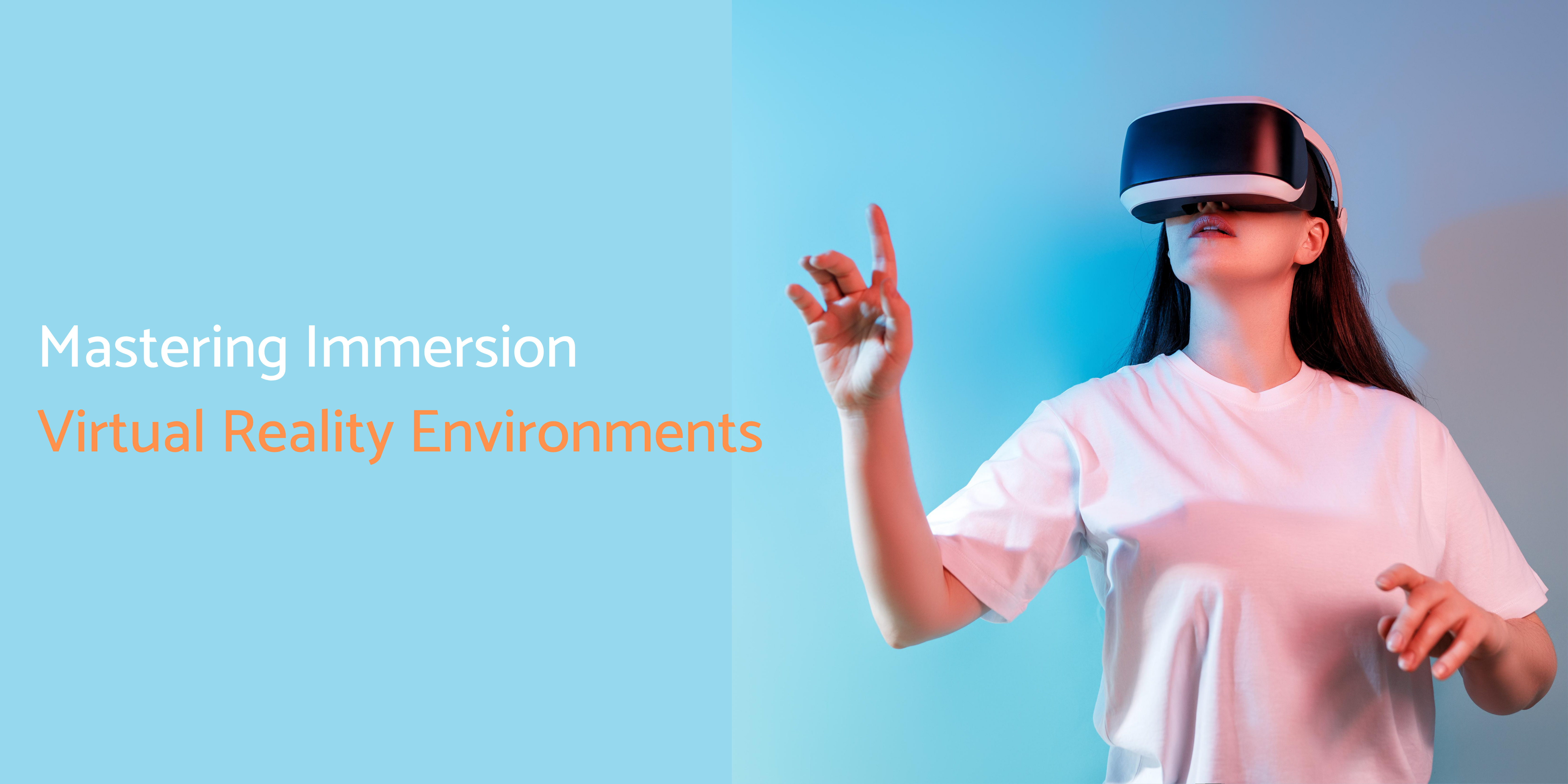

Introduction :
In the real estate industry, Virtual Reality (VR) is currently the main emphasis since it offers an immersive experience that enables prospective buyers to picture themselves living in a house or apartment they are contemplating before it is created. Users can take their experience beyond their imagination by using VR to examine a property from every angle and make real-time alterations to their visual selections.

Have you ever imagined entering your ideal house before it's even been constructed?
Virtual Reality (VR) is currently the primary focus in the real estate world as it provides an immersive experience that allows potential buyers to visualize themselves within a home or apartment they are considering even before it is built.
How VR Enhances Real Estate Transactions
VR is not only an aid in improving the design‘s accuracy prior to the start of building. Through immersive experiences, property exploration is being transformed.
Behind The screen - Virtual Reality's Impact on Real Estate :
- personal needs or business requires a lot of patience and time. Any technology is valued only when it can make our lives easier and more comfortable, and VR comes as a solution to this.
Greater Engagement :
Virtual Reality encounters are more engaging by nature than conventional techniques. As a result, new tenants and buyers develop a more positive connection with the property and a deeper emotive tie.
Taking a Step into the Future: How Virtual Reality Improves Real Estate Sales
- VR makes the process easier, helps everyone involved, and ultimately ends in more successful transactions by providing immersive experiences.
- Let’s explore how Virtual Reality (VR) is transforming open houses, Virtual showings, and Virtual property tours.
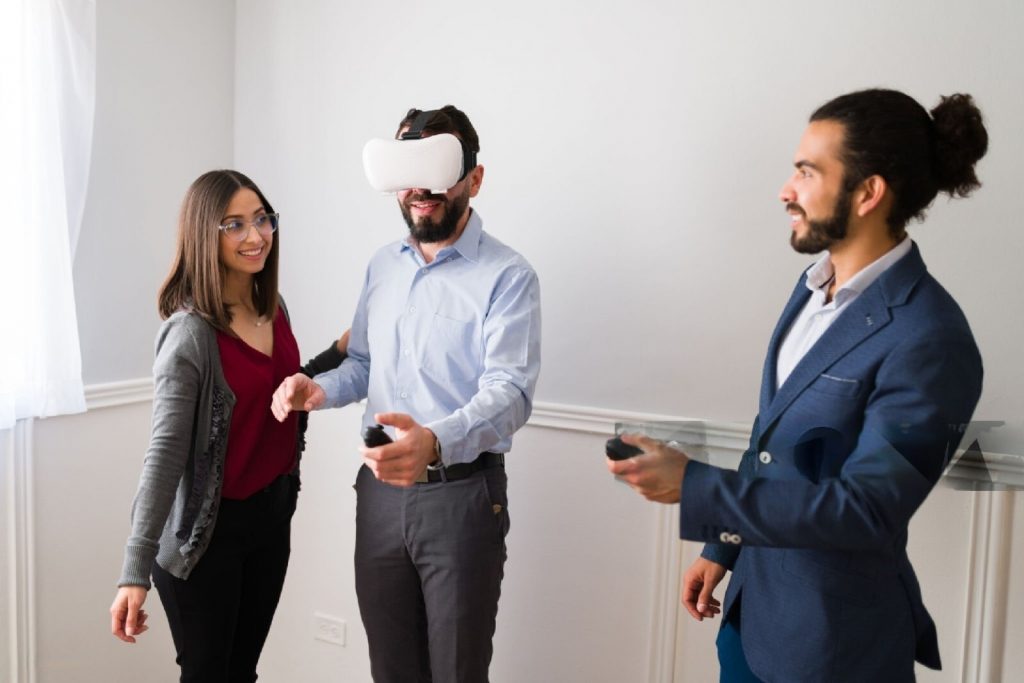
An immersive Virtual Reality property tour
- Purchasing real estate for company or personal use takes a lot of effort and patience.
- When the site is located far from the clients, it becomes even more difficult. Virtual Reality is a solution to this problem.
Demand and offers for VR real estate worldwide
- VR gets free of distance.
- Anyone can virtually see their property with the help of Virtual Reality.
- Buyers must use VR devices for the remote property.
Saves time and money using VR real estate :
With the help of Virtual Reality real estate, one can search and review a property in no time.
Virtual Tours : Bringing Properties to Life
- Virtual Reality provides a level of authenticity that no video, standard photo, or artistic rendering can match.
- It allows clients to engage in an experience that makes them feel like they are standing in the middle of the living space in question.

Explore 3D Walk-Through Rooms :
- One major aspect of VR headsets is that they open limitless vision angles. Therefore, there is no need for a fixed angle limit.
- Forget about only looking at photos or a floor plan, try on Virtual Reality, which means “walking through” rooms from a life-size perspective.
Open house all year :
- Virtual tours are always accessible. Interested parties do not need to arrange in-person appointments to inspect the property.
- This flexibility makes shopping more self-directed and provides options for people who are busy.
The wonder of Virtual Reality goggles
Visual Immersion :
A panoramic picture is projected into high-resolution screens, one for each eye, giving the impression of depth and three dimensions.
Head Tracking :
You experience a sense of being physically there in the Virtual world as the environment smoothly adapts to your head motions, matching your natural movements.
360° Investigation :
Explore the Virtual environment at your leisure, whether you want to look up at the tall buildings, down at the rough cobblestone street, or around to take in the expansive mountain view.
Interactive Components :
The boundaries between simulation and reality can be further blurred with the use of hand and body tracking in advanced VR systems, which let you interact with the Virtual world.
Augmented Reality (AR) vs. Virtual Reality (VR)
Immersion technologies are transforming our interactions with our surroundings. While Virtual Reality (VR) and augmented reality (AR) can offer mind-bending experiences.
VR : Taking You to New Worlds
With Virtual Reality, it’s possible to imagine jumping into the ocean or setting foot on Mars. Wearing a Virtual Reality headset means losing all sense of reality and entering one computer-generated world.
VR experiences
Virtual Reality (VR) has completely changed gaming by enabling users to enter the Virtual world.
- Gaming: VR has revolutionized gaming, allowing players to step inside the game world.
- Education and Training: Virtual Reality simulations can be utilized for instruction in several subjects, including medical operations and pilot training.
- Travel & Exploration: Virtual Reality enables you to virtually visit remote locations and go on historical adventures.
Augmented Reality (AR): Improving Reality
AR does not take the place of your environment. Instead, it uses special headgear or the camera on your smartphone to overlay digital data and visuals over the real world.
AR Experiences :
- Pokémon GO : This well-known game encourages users to explore their surroundings by superimposing imaginary creatures over the actual world via augmented reality technology.
- Furniture Placement Apps : Use furniture placement applications to digitally rearrange furniture in your room before making a purchase.
- Navigation Apps: AR overlays can help you navigate your phone by overlaying turn-by-turn navigation directions onto the screen.
Use Cases for VR in Real Estate
Virtual Reality technology is changing the real estate sector by providing immersive experiences that overcome the limitations of conventional photographs and movies.
- Virtual Tours of Properties: Virtual Reality (VR) tours enable potential buyers to virtually tour properties, experience the area, and explore various rooms in a lifelike three-dimensional setting.
- Visualization of Architecture: They can produce Virtual tours of structures that are still in the planning stages, giving customers a preview of the finished result before it is constructed. This facilitates feedback loops, design modifications, and creates a buzz among prospective investors or buyers.
- Displays of Properties: To make dynamic presentations of various properties, real estate agents can utilize Virtual Reality providing a client with a remote portfolio of luxurious apartments or beachfront villas so they can visually explore every option before selecting a visit.
- 3D Real Estate Tours: 3D provides a more interactive experience by letting visitors explore the area, look about at elements, turn on fireplaces and other facilities, and even open cabinets and drawers realistically.
Benefits for Buyers, Sellers, and Agents
Benefits for Buyers :
- Exploration of Remote Properties: To save time and money on travel, buyers can virtually tour houses situated anywhere in the world.
- Improved Decision-Making: VR tours offer an immersive and realistic experience that surpasses that of standard photographs or movies.
Benefits for Sellers :
- Improved Real Estate Promotion: VR gives a property a distinctive and fascinating presentation that sets it apart from its competitors. Sellers can draw in a larger pool of potential purchasers, including those unable to view the property.
- Greater Reach: Virtual Reality tours are easily shared online, giving sellers access to a worldwide audience of prospective customers.
Benefits for Agents :
- Upgrading Client Engagement: Virtual Reality tours are an effective tool for being enthusiastic clients and creating buzz about properties. This may result in improved customer relations and a rise in confidence in the agent’s knowledge.
- Global go: Agents can use Virtual Reality, just like sellers, to show off homes to a larger audience and go beyond regional boundaries.
- Boost Efficiency: By enabling buyer pre-qualification, Virtual Reality tours can expedite the exhibition process. This enables people who are interested to view properties online before making an in-person consultation.
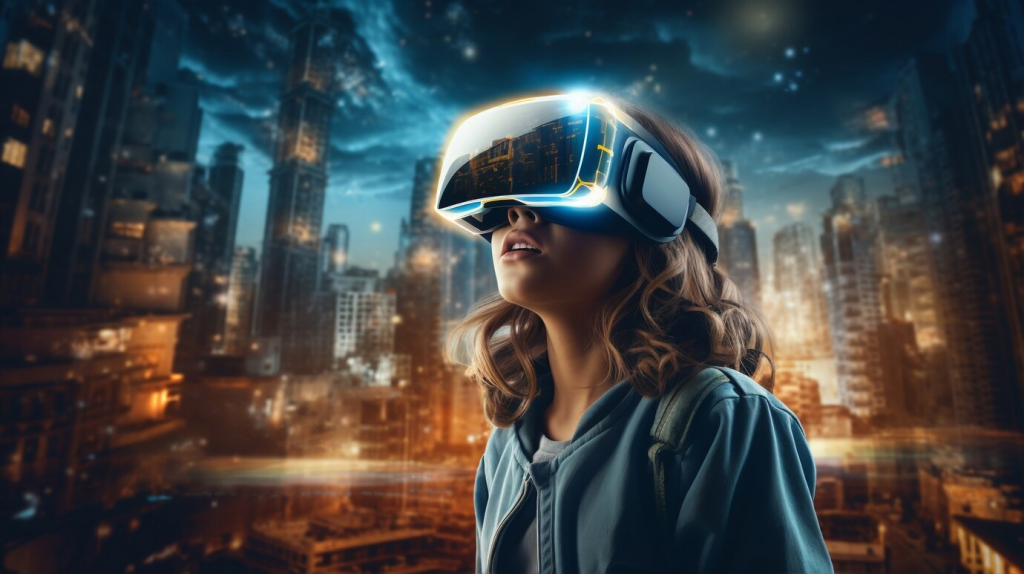
A Look into VR Real Estate's Future
- With the help of Virtual Reality collaboration technologies, buyers and agents will be able to visually arrange furniture, negotiate upgrades, and take joint property tours.
- AI integration will emphasize certain aspects and adapt VR tours to buyer preferences.
- Access to VR technology for smaller participants in the real estate sector may be facilitated via open-source VR platforms.
Conclusion :
The advantages of Virtual Reality are evident, even with these difficulties. We may anticipate VR technology to become increasingly more important as a tool for all parties involved in the real estate sector as it develops and becomes cheaper. Undoubtedly, the immersive VR environment will play a significant role in the future of property buying, selling, and experience.
Recents Post


3D Product Visualization in Modern Marketing

Augmented Reality in Healthcare
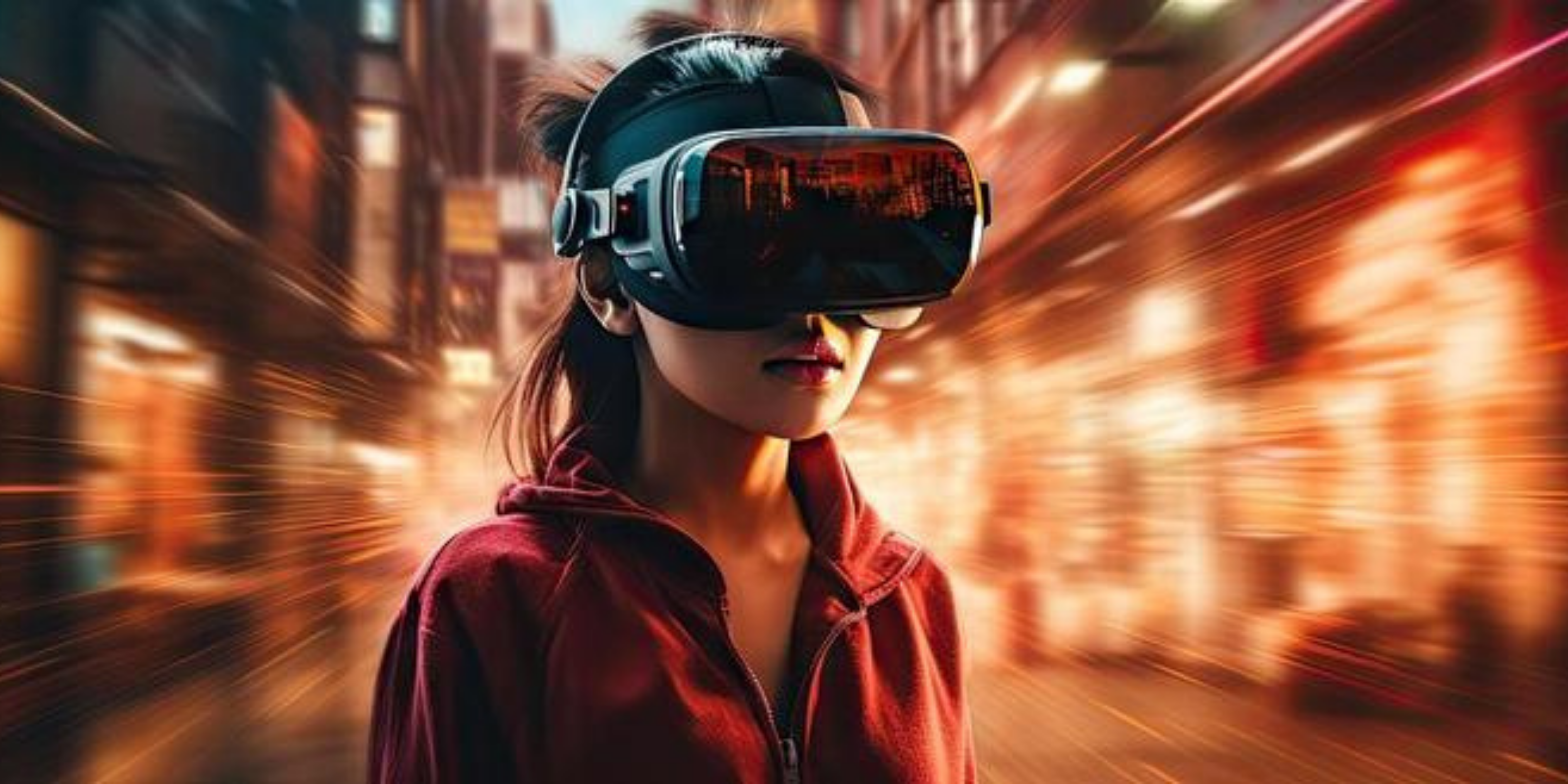
XR Games : The Next Frontier of Entertainment
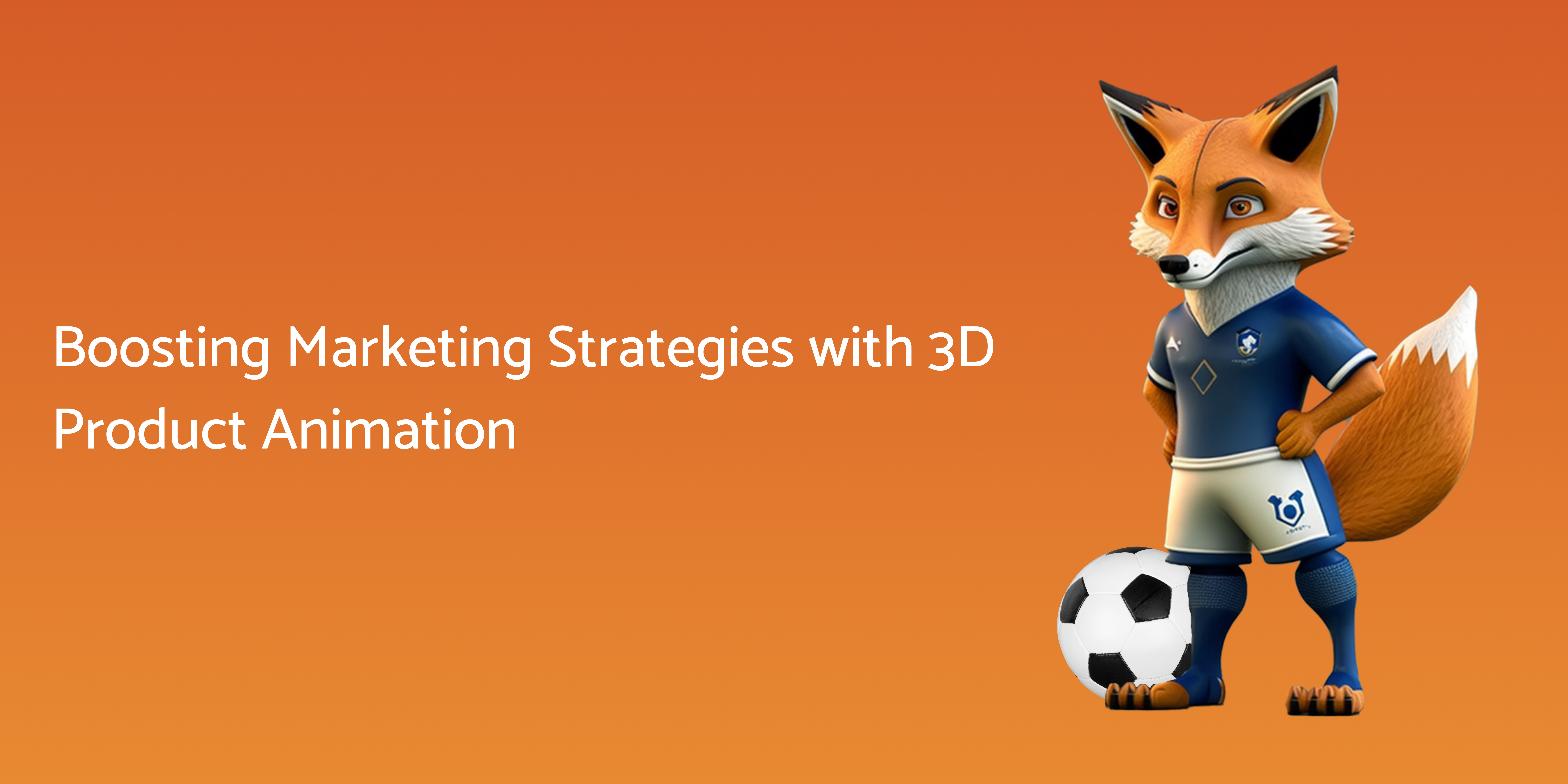
Boosting Marketing Strategies with 3D Product Animation
